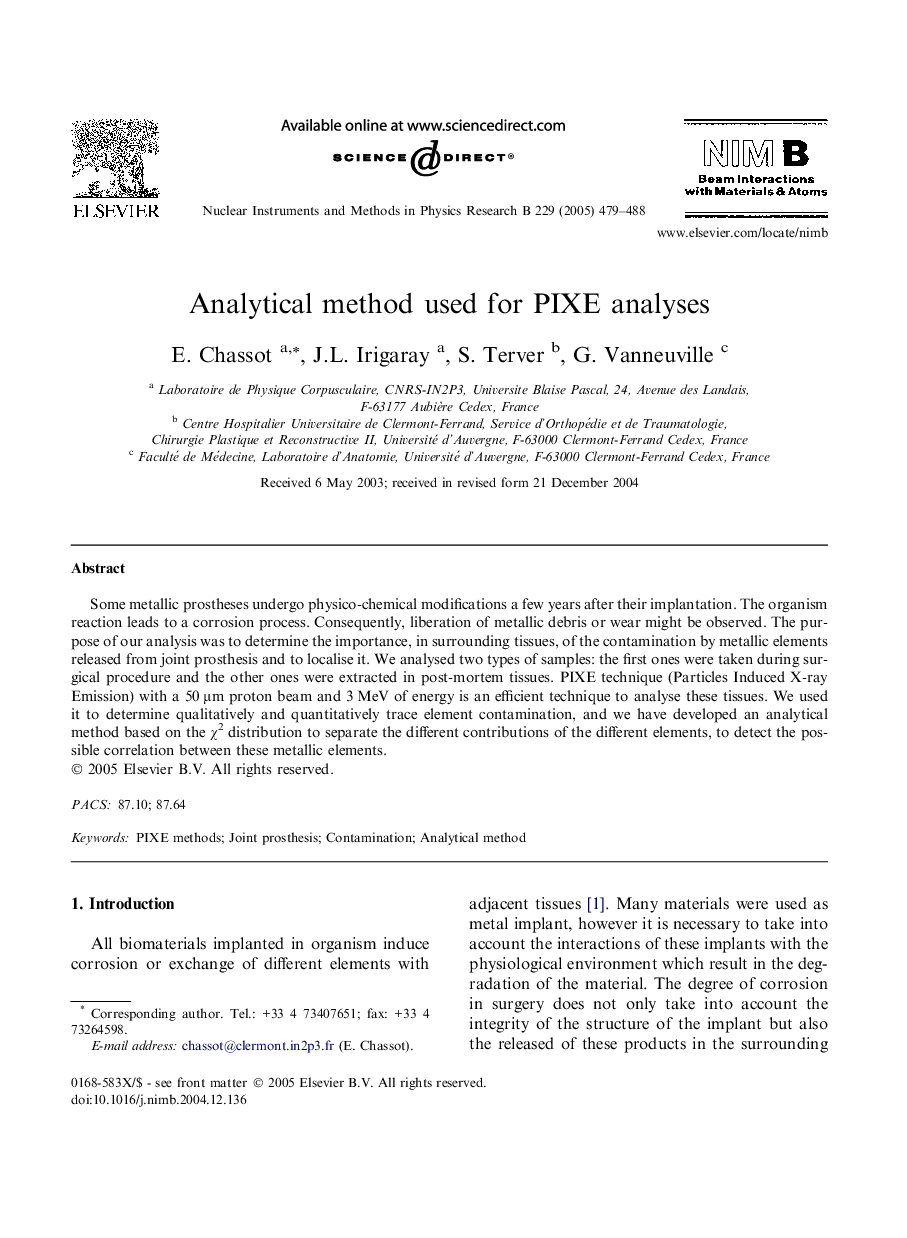| Article ID | Journal | Published Year | Pages | File Type |
|---|---|---|---|---|
| 9818360 | Nuclear Instruments and Methods in Physics Research Section B: Beam Interactions with Materials and Atoms | 2005 | 10 Pages |
Abstract
Some metallic prostheses undergo physico-chemical modifications a few years after their implantation. The organism reaction leads to a corrosion process. Consequently, liberation of metallic debris or wear might be observed. The purpose of our analysis was to determine the importance, in surrounding tissues, of the contamination by metallic elements released from joint prosthesis and to localise it. We analysed two types of samples: the first ones were taken during surgical procedure and the other ones were extracted in post-mortem tissues. PIXE technique (Particles Induced X-ray Emission) with a 50 μm proton beam and 3 MeV of energy is an efficient technique to analyse these tissues. We used it to determine qualitatively and quantitatively trace element contamination, and we have developed an analytical method based on the Ï2 distribution to separate the different contributions of the different elements, to detect the possible correlation between these metallic elements.
Related Topics
Physical Sciences and Engineering
Materials Science
Surfaces, Coatings and Films
Authors
E. Chassot, J.L. Irigaray, S. Terver, G. Vanneuville,
